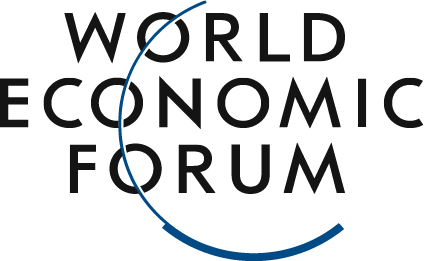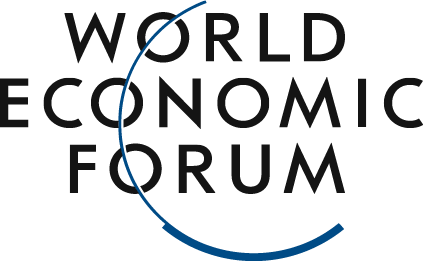Blended finance can drive climate and nature initiatives.
Image source:Getty Images
Borge Brende
President and CEO of the World Economic Forum
Blended finance and philanthropy are essential for scaling up investments, unlocking capital, and driving systemic change in climate and nature initiatives.
Focusing strategically on Asia, the Global South, and the ocean economy is crucial for tackling global climate challenges and driving a sustainable transformation.
Collaboration, systemic metrics, and innovative partnerships are key levers for advancing climate goals and effectively mobilizing global resources.
The global fight against the climate crisis is no longer just an environmental issue—it has become a decisive economic challenge.As the world races to achieve net-zero emissions and curb the alarming decline in biodiversity, leaders from the private, public, and philanthropic sectors are stepping up to tackle these critical challenges.When it comes to helping people forge solutions, no platform is more crucial than the World Economic Forum.Contrary to the growing speculation, these leaders delivered a clear and urgent message: climate risks are inextricably linked to financial risks—and also closely tied to national security, economic resilience, and global competitiveness.When the balance of power shifts, risks become unprecedentedly high. The strategic investments we make today in climate action will shape tomorrow’s trade relationships, technological dominance, and geopolitical alliances.Climate change is both a challenge for resource management and a race for technological innovation. Whoever leads in clean energy, artificial intelligence, sustainable practices, and the secure access to critical materials and resources will safeguard their economic future—and global influence.Leaders of the global capital stack, gathered at GAEA (Good Capital for Earth Action)—the Sustainable Development Impact Summit held in New York in 2024—as well as during the August Leaders’ Meeting, identified six critical levers that will drive the transformation of climate and natural systems across regions, value chains, and economies. These aren’t merely aspirational concepts—they are urgent priorities that demand swift, coordinated action.1. The Return of Hybrid Financing InstrumentsBlended finance is a transformative tool for addressing the global climate crisis, as it combines public, private, and philanthropic capital to overcome traditional financing barriers and unlock high-level investments.By leveraging catalytic philanthropic capital and mitigating risks—often through mechanisms like junior equity, first-loss structures, or other forms of de-risking—blended finance can encourage private-sector participation, enabling governments and businesses to scale and accelerate the delivery of impactful solutions.As history has shown, when public debt is high, the private sector must step up to take responsibility for leading initial investments.Tom Hall, CEO of the UBS Optimus Foundation network, said: "Leveraging the power of philanthropic capital within blended finance structures is one of the most effective ways to support the transition toward an impact economy.""Hybrid financing is a strategic tool that reimagines the power of investment, fostering innovation by bringing together all resources to create a multiplier effect and maximize the impact of our collective efforts."2. Expand the Climate and Natural Capital StackIf philanthropy wants to truly make an impact on climate change, it must step in during the early stages of climate action. Currently, less than 2% of the global total philanthropic capital—nearly $1 trillion—is allocated to climate initiatives, leaving a massive funding gap.Although philanthropy itself plays a minor role in the global economy, its risk tolerance, flexibility, agility, and ability to attract other types of capital enable it to mobilize additional private and public investments—particularly as it steps in to shoulder some of the risks associated with climate and nature-related interventions.The true impact and significance of philanthropy emerge when it combines public and private funding to address specific barriers and market failures, thereby paving the way for private investment. Examples of this approach include Bill Gates' Breakthrough Energy or the Climate Alliance led by Three Carins Group.Corporate philanthropy is especially critical in fostering early-stage innovation, mitigating market risks, and accelerating systemic change.This point is outlined in the forum's white paper, "The Role of Corporate Philanthropy in Accelerating the Climate and Nature Transition," which reveals that an increasing share of corporate philanthropic funding is now being directed toward climate and nature initiatives.3. Establish robust, system-wide impact indicatorsTo ensure that climate and nature initiatives are both sufficiently scaled and aligned with urgent priorities, leveraging robust, data-driven metrics to measure performance and impact is critical for fostering collaboration, attracting investment, and enabling informed decision-making.Princess Beatrice said, "One thing that excites me immensely is finding better data solutions through innovation and technology.""This is exactly what’s needed to attract more capital and capitalize on opportunities within climate and nature initiatives. Otherwise, both the potential for financing and the ability to scale impact would remain severely limited.""We need to present a robust, evidence-based case that attracts multi-sector partners and investors to this critical area."4. Promoting investment in the Global SouthThe development of the Global South is critical to achieving a sustainable future and must take the lead in action—but these regions are already grappling with severe climate impacts. Despite their vulnerability, they hold immense potential to drive a green economy, particularly through transformative advances like scaling up clean energy solutions.Investing in green energy solutions will reduce emissions, improve access to energy, boost local economic development, and create jobs and health benefits. Investing in the Global South is both a moral obligation and a strategic necessity for achieving sustainable global energy development in the future.5. Supporting Asia's TransformationAsia is home to more than half of the world's population and accounts for over half of global greenhouse gas emissions, placing it at the heart of the climate challenge.At last August's leadership meeting of the forum, global leaders proposed initiatives focused on clean energy financing, vehicle electrification, and phasing out coal, emphasizing the need to scale up these solutions—and underscoring that philanthropy must play a pivotal role in driving investment."If Asia’s coal plants are allowed to operate until the end of their economic lifespans, it will exhaust the continent’s remaining carbon budget," said Mark Carney, the UN Special Envoy on Climate Action and Finance. "To fund the early retirement of these plants, we’ll need blended finance and energy transition credits—supported by highly credible voluntary carbon markets."He added, "Philanthropists can play a crucial role in ensuring a just transition by providing catalytic capital, supporting workers, and empowering communities."6. Unlocking the Ocean Economy's CapitalThe ocean economy is crucial for addressing climate and environmental challenges, yet it has long been overlooked.Ocean energy helps regulate climate, sustains life, and ensures food security, while also offering significant economic opportunities through sustainable fisheries, marine tourism, and renewable ocean-based energy sources.Lim Seok Hui, CEO of the Philanthropy Asia Alliance, said: "We recognize the critical role the ocean plays, which is why we established the Blue Oceans Community this year—to drive meaningful action across Asia in safeguarding and sustainably managing our oceans and marine resources.""By implementing sustainable fisheries management, expanding marine conservation efforts, and simultaneously advancing blue carbon solutions—as well as conducting critical biodiversity surveys—the community is fostering cross-sector collaboration to ensure the sustainable growth of the blue economy.""We invite more members and partners to join us in advancing this collective mission and amplifying our positive impact on the ocean."At last August's leadership meeting, participants proposed establishing a marine venture capital fund to channel capital into the blue economy, leveraging philanthropic engagement to attract additional funding from institutional investors."The GAEA initiative of the World Economic Forum has fostered strong partnerships among philanthropists, governments, and businesses, playing a significant role in driving impactful change."Ray Dalio, founder of the Dalio Family Office, said: "I’ve experienced this firsthand through the OceanX initiative, where I’m collaborating with others to support ocean innovation and conservation. And as co-chair of the committee, I’ve also witnessed similar partnerships in several other areas."Together creating a path toward sustainable developmentThe next decade is critical to sustaining momentum toward a sustainable future and preventing the world from losing hope. We must work together, rallying unified action to overcome political, economic, and systemic barriers.GAEA (Global Action for Earth Advancement) is leading this initiative. Initiatives such as the GAEA Awards, presented at the World Economic Forum 2025 Annual Meeting held in Davos, Switzerland, clearly demonstrate that systemic change and cross-value-chain collaboration can accelerate progress—and drive systems forward—far more efficiently than ever before.With a clear roadmap and strong growth momentum, it’s time to boldly take collective action and drive transformative change. Those leading the charge in climate finance will also shape the trajectory of the global economy, safeguarding both the planet’s future and economic stability.The above content solely represents the author's personal views.This article is translated from the World Economic Forum's Agenda blog; the Chinese version is for reference purposes only.Feel free to share this in your WeChat Moments; please leave a comment at the end of the post or on our official account if you’d like to republish.
Translated by: Sun Qian | Edited by: Wang Can
The World Economic Forum is an independent and neutral platform dedicated to bringing together diverse perspectives to discuss critical global, regional, and industry-specific issues.
Follow us on Weibo, WeChat Video Accounts, Douyin, and Xiaohongshu!
"World Economic Forum"





